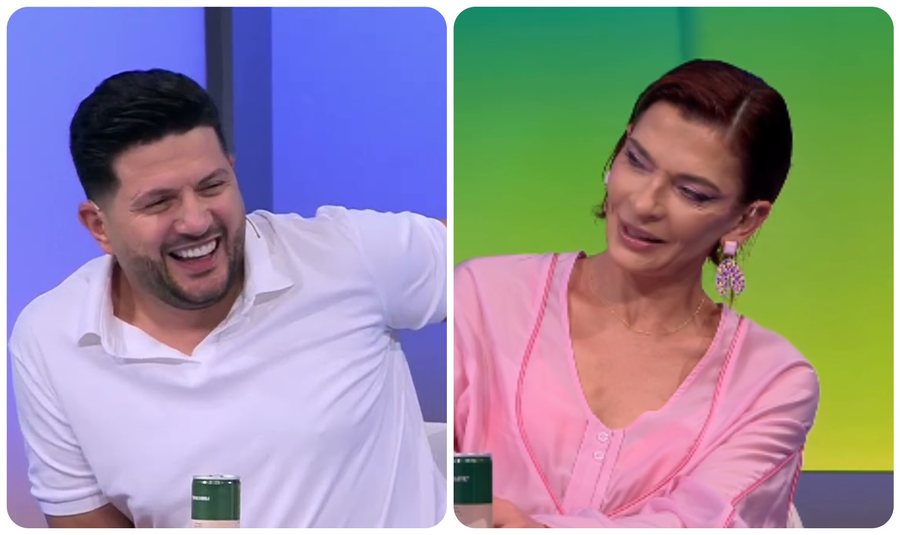
Subtitle: Ema Andrea and the brilliant way she turned Ermal's mistaken invitation into a lesson in respect
On the show "Goca & Gra", a moment between Ermal Mamaqi and the famous actress Ema Andrea set the internet ablaze. During the conversation, Ermal - who has long been organizing motivational trainings for "personal potential" - told Ema:
"I have a training on Saturday and Sunday. All the tickets are sold out, I'm not advertising. If you want to come, you'll listen to me for two days and I'll tell you, maybe if you want, what you can do better with your life."
Emma listened, smiled, and calmly replied:
"Now I understand why you are in this situation, because you are convinced that everything you say will serve everyone. I thank you for the invitation, but what I do in life I have chosen and I am successful because I chose this way and I have more important things to do."
On the networks, the reactions were unanimous: "Bravo Ema!", "She showed him the place!", "Finally someone told him bluntly."
But what exactly made this moment so awkward?
"I will tell..."
When you tell someone, “I’ll show you how to make your life better,” you’re actually sending the message, “Your life isn’t good enough—and I know more than you do.” In the ethos of any serious coach, the relationship begins with permission and respect, not with “unsolicited diagnosis.” Unsolicited advice doesn’t feel like help; it feels like beautifully packaged judgment.
"You will listen to me for two days"
At this point, the balance was upset. Ermali was placed in the role of the “guru” who knows everything, while Ema was placed in the position of the “student” who must listen. But Ema Andrea is an artist with decades of experience, a woman who has built her own career and philosophy of life. Instead of showing interest in her perspective, he presented himself as someone who has the answers, and for anyone who knows their own worth, this is unacceptable.
"I'll show you what you can do better with your life"
This sentence is problematic because it assumes that the other person is not where they should be. Emma didn’t take it personally, but she didn’t leave it unanswered either. She reacted naturally: she set boundaries, she emphasized her choices, and she did what many women (and men) often hesitate to do: she said “no” gracefully.
"I'm not advertising..."
When you emphasize that "tickets are sold out" and "I'm not advertising," the effect is the opposite. It sounds exactly like an advertisement.
To sum up, the problem was not the invitation, but the way it was formulated: without permission, with hierarchy, in public and with a marketing flavor. In communication, the manner is as important as the content. In this case, Ema reacted with dignity and set a healthy boundary: “I don’t need you to tell me how to make my life better - I’m living it the way I want.”
And perhaps, this is the best lesson that can be given in a life training. :)





